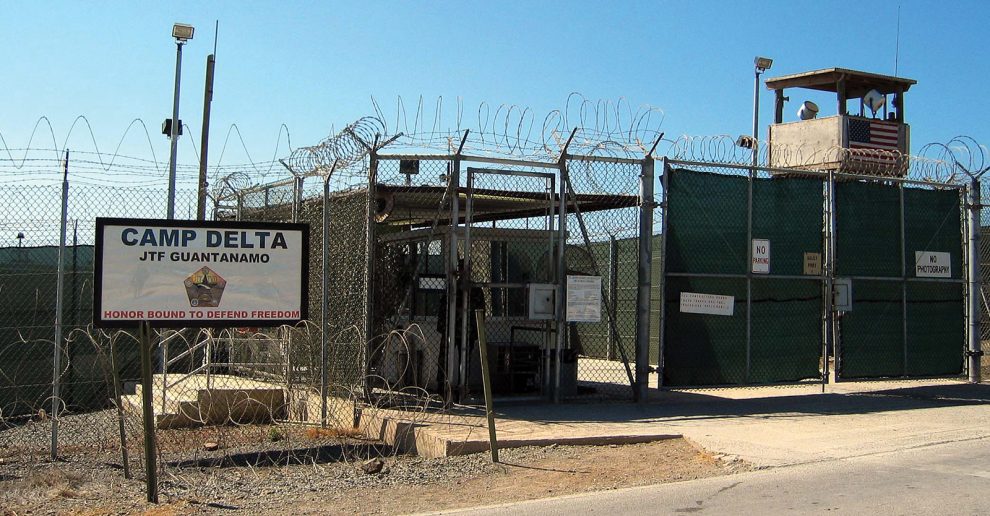The Biden administration Monday removed its first detainee from Guantanamo Bay, sending a man back to Morocco who had first been recommended for discharge in 2016 but who remained in the Cuba prison through former President Donald Trump’s time in office.
Abdul Latif Nasser, 56, was transferred to custody in Morocco, leaving 39 prisoners at the prison, reports The New York Times. The transfer marks the renewed efforts, that had been pursued under former Presidents George W. Bush and Barack Obama but slowed under Trump, to thin the prison’s population
Eleven of the remaining prisoners at the facility have been charged with war crimes. At its peak over the almost 20 years since the Sept. 11, 2011 attacks and during the invasion of Afghanistan, the prison, at a U.S. naval base, held about 675 men.
Nasser was being held as a law-of-war detainee and had not been charged with a crime. Pakistani security forces captured him in Afghanistan in December 2001 and turned him over to the United States military, which sent him to Guantanamo Bay.
The review task force there designated him for continued detention, but in July 2016, the interagency Periodic Review Board recommended him for transfer only to Morocco. Security assurances were negotiated by U.S. officials and approved by U.S. departments and agencies.
Military intelligence officials say Nasser is a former Taliban fighter who had fought U.S. forces in the Tora Bora mountains in late 2001. He told an interagency panel in 2016 that he “deeply regrets his actions of the past.”
The Biden team is considering further transfers, including one for a Saudi man, Mohammed al-Qahtani, who is reported to be mentally ill but also is widely considered to have been a candidate to have been a 20th hijacker on 9/11.
Meanwhile, 28 prisoners remaining at Guantanamo Bay have been held, like Nasser, as indefinite law-of-war detainees, and 10 of those have been recommended for transfer to other countries.
Biden’s White House has adopted a low-profile effort in closing Guantanamo Bay, after Obama, who made the closure a significant policy issue, met with fierce opposition from Congress.
A senior administration official said Sunday the White House is “grateful” to Morocco’s kingdom for its “willingness to support ongoing U.S. efforts to close the Guantánamo Bay detention facility,” and that the administration is dedicated to reducing the detainee population and ultimately closing the prison.
Nasser’s family members in Casablanca say they’ll find him work in his brother’s swimming pool cleaning business, according to his attorney, Thomas Anthony Durkin of Chicago, who has represented Nasser for more than 10 years.
Nasser was close to being released in early 2017, when the then-Trump administration stopped all transfers while closing the State Department office that had negotiated security arrangements for the proposals.
Just one detainee left Guantanamo while Trump was in office. That person was a confessed Qaeda terrorist who was repatriated to Saudi Arabia to serve out a prison sentence that had been imposed under a U.S. military commission.
Meanwhile, Secretary of State Antony Blinken said last month, during a human rights discussion in Paris, that the administration is working on individual cases for the detainees who have not been charged with crimes, but said it is “not easy” to find countries that will welcome the prisoners, or guarantee their rights will be protected in other nations.
The interagency Periodic Review Board has announced five decisions since Biden took office, and approving all of them for transfers including the oldest prisoner at Guantanamo, a 73-year-0ld native of Pakistan who suffers from heart disease and other ailments.
The board has representatives from six national security agencies, and its transfer recommendations do not guarantee prisoners will be released, as the State Department must still work on a transfer deal, the defense secretary must approve the arrangement personally, and notice must be given to Congress.
Story cited here.
























